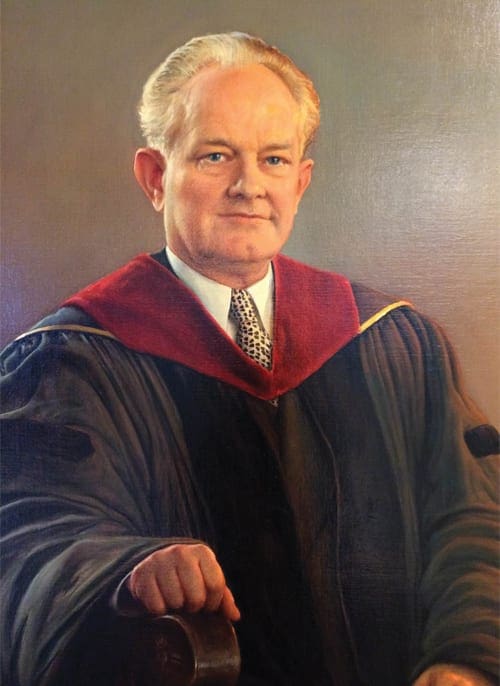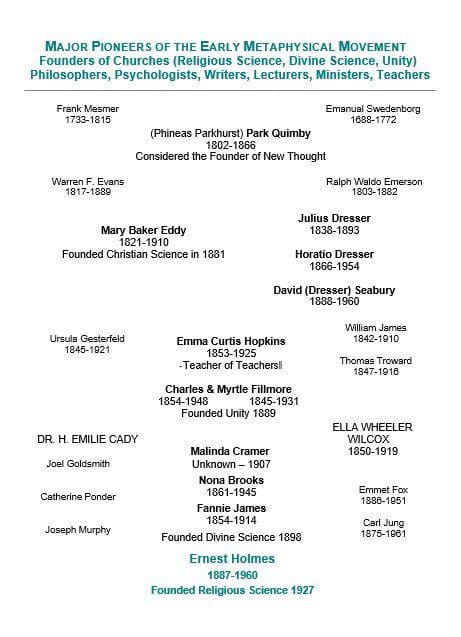Our Founder

Dr. Ernest Holmes
From time to time, we are blessed to know people of apparent genius, people whose insight, understanding and love are influential in changing the thinking of whole generations, and whose impact will be felt for years to come. Dr. Ernest Holmes was such a person.
Dr. Ernest Holmes founded the spiritual movement that became United and International Centers for Spiritual Living. Born in 1887 on a small farm in Maine, Dr. Holmes spent his teenage years outdoors exploring such mysteries as “What is God? Who am I? Why am I here?” His inquiries led to his 1926 book, The Science of Mind, which outlines the foundational viewpoints of modern New Thought.
Dr. Holmes is also the author of numerous other books on metaphysics and originated the Science of Mind magazine, which has been in continuous publication since 1927.
History of New Thought
The New Thought tradition dates to the 1880s and has its roots in the Transcendentalist Movement of the 1830s.
New Thought has an enduring and respected legacy that includes luminaries such as Ralph Waldo Emerson, Emma Curtis Hopkins, Phineas Quimby, and Walt Whitman. Some well-known authors today whose writings are inspired by our teachings include Deepak Chopra, Wayne Dyer, Eckhart Tolle, and many others.
Our teachings incorporate the ancient wisdom of all the spiritual traditions through the ages. People of all spiritual paths Christian, Jewish, Buddhist, Hindu, Muslim, New Age and others are welcome in our communities.

What is the Science of Mind Teaching All About?
In the language of Dr. Holmes: Religious Science is a synthesis of the laws of science, opinions of philosophy, and revelations of religion, applied to human needs and the aspirations of humankind.
The Science of Mind teaching is transdenominational, honoring all mindful paths to God. We believe that God is a Loving Intelligence, operating in and through all life and that the spiritual and material universe are One, making it possible for every individual to have a direct relationship with the God of their understanding.
Because Universal Mind represents an objective principle, rather than a guru or a deity, it cannot dispense favoritism or judgment. Science of Mind and its benefits are accessible to all on equal terms – without ritual, investment, or formal affiliation. Interested seekers have nothing to confess, promise, renounce, or hand over.
So, no matter a person’s faith traditions or culture, the application of the Science of Mind principles and practices, which advocate for the unlimited creative power of our thoughts and us therefore as co-creators of our reality, will cause new desired conditions to appear in our lives, and impact the greater good of all.
Science of Mind is an open-ended truth. Ernest Holmes did not claim that he had found the ultimate answers to life‘s questions.
“This is my revelation, not yours,” he emphasized. “It must always remain open at the top for new insights.” With even the most rudimentary understanding of Mind, any person can use thought to solve day-to-day problems. And, from that point, spiritual awareness can expand indefinitely.




